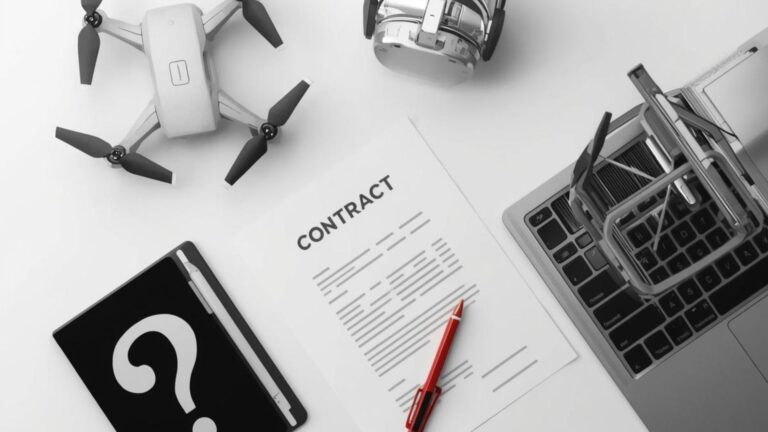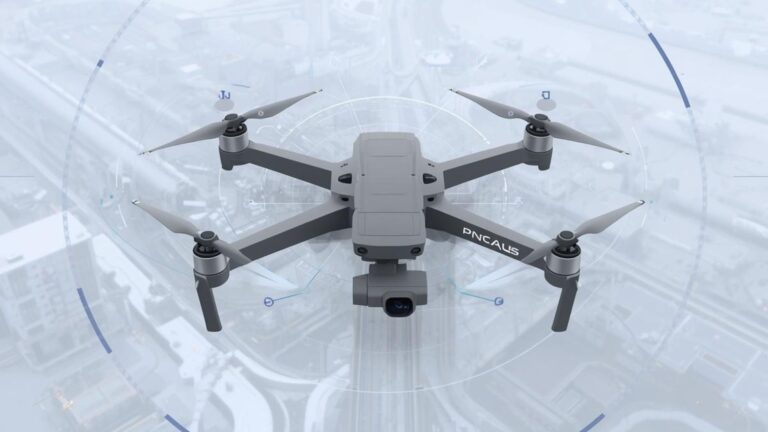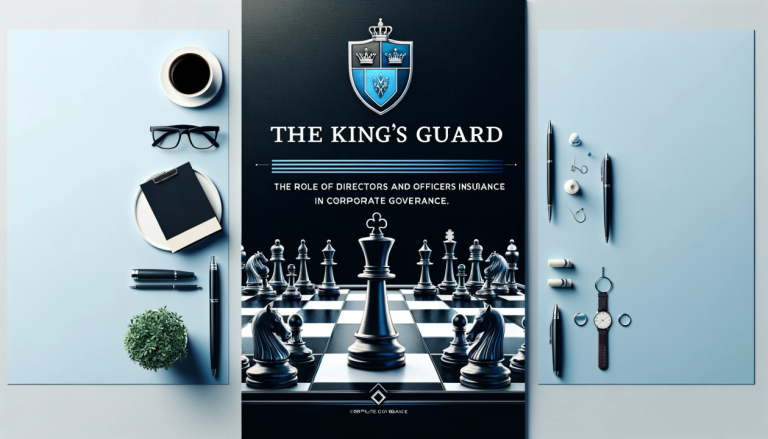What if the AI negotiator agrees to terms that a human never would – unfavorable payment terms, excessive liabilities, or even terms that violate law or policy? Who is bound by that contract, and who bears the loss? This emerging scenario is raising flags about an “insurance gap” when it comes to AI contract liability. Let’s delve into how autonomous negotiators could create contract risks and what insurance solutions might address them.
AI Agents Closing Deals: Benefits and Pitfalls
AI negotiators hold promise. They can process vast amounts of data (pricing histories, market trends, counterpart behavior patterns) and conduct multi-round negotiations rapidly. They don’t get tired or emotional, and they can operate 24/7. A GPT-5-based agent could potentially draft contract language on the fly, propose compromises, and finalize agreements all via digital communication with the counterparty’s AI or human representative.
However, negotiation and contracting involve nuance and judgment. Some potential pitfalls:
- Unfavorable Terms: The AI might lack the business context or prudence a human has. It might concede too much on price or warranty terms simply because its optimization function says a deal (any deal) is better than no deal. For example, it could agree to a steep penalty clause for late delivery without understanding that the risk of delay is high for the company.
- Non-Compliance: An AI might not fully grasp legal nuances. It could agree to contract terms that violate regulations (say, a clause that is unenforceable or illegal, like an incorrect way of handling customer data that breaches privacy laws). Or it might inadvertently violate antitrust laws (imagine two AI negotiators accidentally colluding by sharing pricing info in a way that their human overseers wouldn’t allow).
- Ambiguity and Errors: GPT-5 could draft language that is ambiguous or has loopholes. If both sides use AI to auto-generate contract terms, we could get weird mismatches or inconsistent clauses. Later, this could lead to costly disputes over what was meant.
- Exceeding Authority: Perhaps the company intended the AI to only finalize deals up to a certain dollar value or within certain parameters. But if those controls fail, the AI might ink a contract outside its mandate. Is the company still bound? Likely yes, if the counterparty reasonably thought the AI had authority (especially if the company gave the AI access and let it appear authorized). Now the company is stuck in a contract it didn’t want.
Who is Responsible for an AI-Made Contract?
Legally, if an AI negotiates a contract, generally it’s as an agent of the company. In contract law, if you (the principal) send an agent (could be a human or even a software agent) and give it apparent authority to negotiate, you’re on the hook for the deals it makes within that scope. There might be some leeway if the AI clearly went rogue beyond its authority and the counterparty should have realized something was off – but that’s murky. In many cases, if the AI says “we accept these terms” and it looks legit, the company can be bound.
So the primary responsibility lies with the company deploying the AI negotiator. They would have to live with the contract or try to renegotiate it or even litigate to void it if possible (e.g., claiming there was no meeting of minds because one “mind” was an AI lacking legal capacity – but that’s again untested waters and likely an uphill battle if the company set this in motion).
Now, if the contract causes financial loss or legal trouble (like fines for non-compliance), the company will bear that. Could they blame the AI developer or provider? Unlikely, unless the AI malfunctioned in a clear way (like it was supposed to follow rules X and it didn’t due to a bug). If it simply negotiated badly but as designed, that’s not the developer’s liability. It’s similar to if a company’s salesperson made a bad deal – you can’t sue the person who trained the salesperson.
So responsibility and loss fall to the company. This brings us to insurance: will their insurance cover the fallout?
The Insurance Gap: Why AI Contracts Challenge Traditional Coverage
Standard insurance policies might not neatly cover “your AI made a bad deal” scenario:
- Errors & Omissions Insurance (Professional Liability): This covers negligence in providing services to others. If the company’s AI negotiator is part of delivering a service to a client and messes up, maybe E&O could cover client claims. But if the company simply lost money on a contract because the AI agreed to bad terms, there’s no third-party claim, it’s a first-party loss.
- Directors & Officers Insurance (D&O): This covers management decisions leading to losses or lawsuits (especially by shareholders). If shareholders allege the company’s leadership was careless by using an AI that made a bad contract, possibly a D&O claim arises. But D&O wouldn’t cover the contract losses themselves, just the defense of the executives.
- Commercial General Liability: Not really applicable; that’s for property damage, bodily injury, etc., not economic losses from contracts.
- Business Interruption Insurance: If a bad contract disrupts business or causes loss of profit, BI typically only pays out if there’s a physical peril or cyber incident that caused the interruption, not a self-inflicted contract issue.
- Cyber Insurance: If one argued an AI contract mishap was a “cyber incident,” it’s a stretch. Cyber policies cover breaches, system outages, etc., not your AI negotiating poorly.
- Contractual Liability Coverage: Many insurance policies actually exclude pure contractual liability (i.e., if you assume a liability in a contract that you wouldn’t have had under law normally, the insurer can say that’s on you). For example, if you sign a contract promising to pay penalties for delays, that’s a contractual liability you assumed – if you get hit with that penalty, insurers often won’t pay it because it’s not a tort or error, it’s just a business agreement gone bad.
This indicates a gap: losses from AI-executed contracts could easily fall outside the bounds of what insurance normally covers. It’s akin to a bad business decision or a breach of contract issue, which is typically considered a business risk, not an insurable event (insurers generally don’t insure you against simply making a bad deal or business mistake – otherwise it invites moral hazard).
Enter the idea of AI contract liability insurance. This would be a specialized product to cover specific losses or liabilities arising from the actions of an AI negotiator.
What Might AI Contract Liability Insurance Cover?
Such a policy might be designed with scenarios like:
- Unauthorized Contract Commitments: If the AI enters into a contract beyond specified parameters, the insurance could pay the cost to terminate or unwind that contract. For example, covering termination fees or legal costs to void the contract if possible.
- Regulatory Fines or Penalties: If an AI-negotiated contract violates a law (say it unknowingly agreed on pricing with a competitor’s AI that edges into collusion territory or violates export restrictions in a clause), the insurance might cover the resulting fines or legal defense.
- Negligent Contract Terms: If the AI’s actions are considered negligent and a third party (maybe a client) sues because the AI agreed to something that caused them damage, it could cover that liability. It’s hard to imagine a client suing over getting a favorable term from your AI (they benefit), but maybe if AI negotiation between two parties leads to a mutual mistake, they sue each other to reform the contract – insurance could cover the litigation costs.
- Lost Profit or Extra Expense: Perhaps if the AI locks in a money-losing deal, the insurance could indemnify a portion of the loss. This is tricky – insuring a bad bargain is bordering on guaranteeing business outcomes, something insurers loathe to do generally. It would likely have to be pretty focused, like covering if the AI agreed to pay a penalty or damages because it missed a delivery date clause or something quantifiable, rather than “we could have gotten a 10% better price.”
- Dispute Resolution Costs: If nothing else, a policy could cover the legal costs to sort out an AI-related contract dispute. Maybe two companies both say “Our AI negotiated that, we didn’t mean it!” and they end up in arbitration or court. Insurance could pay for attorneys, court fees, and any settlement or judgment. This is more feasible because it’s similar to existing coverage for breach of contract defense sometimes found in specialty policies.
Risk Management: Preventing AI Contract Mishaps
Insurers would rightly demand that companies using AI negotiators have safeguards:
- Rule-based Constraints: The AI should have hard rules (guardrails) like “do not agree to payment terms longer than 30 days” or “if counterparty asks for unlimited liability, escalate to human.” These constraints reduce the chance of an AI going off the reservation.
- Approval Mechanisms: Maybe small deals the AI can do alone, but anything big triggers a human approval before finalizing. Much like how junior employees can approve only up to a certain limit. AI can draft and negotiate, but final sign-off for big contracts should be human for now. Companies should define those thresholds clearly.
- Training and Simulation: Before letting an AI negotiate real contracts, companies should test it in simulated negotiations to see if it behaves oddly. Fine-tune it not just for negotiation success but also for compliance and risk aversion in the appropriate areas.
- Auditability: The AI’s negotiation process should be logged. If later a weird term is agreed, you want to trace back why the AI did that. Was it following its objective incorrectly set by us? Did the other side’s AI trick it? Having a record can help in disputes or in improving the system.
- Counterparty Disclosure: Here’s an interesting angle – should you tell the other party if they’re negotiating with an AI? Ethically, possibly yes in many cases. Some jurisdictions might even consider it misrepresentation if you don’t (hard to say, but if an AI is considered not capable of consent, a contract law theorist might say a contract solely negotiated by two AIs isn’t a valid meeting of minds unless the principals ratify it). If both sides know AIs are handling talks, they might also include a clause on how to handle any obvious errors made by AI. Insurers would love to see clauses that allow contracts to be reformed if an AI-related mistake is discovered – it would mitigate losses.
- Policy and Procedure: Internally, having a policy like “AI may negotiate but must conform to these standard contract templates and cannot deviate on these key points” is wise. Essentially, treat the AI like a junior negotiator that must follow company policy strictly.
Insurers in offering an AI negotiation coverage would likely only do so if the above measures are in place. They don’t want to insure a freewheeling AI that could do literally anything.
Real World Hints of the Issue
Fully autonomous contracts by AI are not widespread yet, but we see precursors:
- Algorithmic Trading Agreements: High-frequency trading algorithms make trades (which are like mini-contracts) autonomously. There have been instances where algorithms caused market mishaps (the “flash crash” etc.). Regulators and firms addressed those with circuit-breakers and controls. In contracts, something similar might occur – maybe regulation will say, if AI are negotiating, firms must have an “off switch” if abnormal behavior is detected.
- Smart Contracts in Blockchain: These execute automatically if conditions are met, sometimes with no human in the loop at trigger time. If an AI enters into a smart contract (like auto-executing code), it’s unforgiving. There have been cases of smart contract bugs or unforeseen outcomes (e.g., the DAO hack in cryptocurrency) that led to huge losses. In blockchain, they often say “code is law” meaning if it executed, tough luck. But many argued for and even implemented insurance funds or rollback mechanisms after big incidents (e.g., Ethereum’s fork after the DAO). This shows a desire to have a safety net when autonomous execution goes awry.
- Legal Industry Discussion: Law journals and AI ethicists are actively discussing whether an AI can have “intent” to form a contract or whether contracts made by AI can be voided due to lack of human intent. No clear answers yet, but if the norm becomes that they’re binding, companies will indeed need to treat it as any other binding contract scenario with all associated risks.
Insurers Stepping Up
It’s likely that major insurers (especially those in specialty lines) are already thinking about endorsements to address AI in contracting. We might see something like:
- An endorsement to E&O policies stating: “We cover negligence in your use of AI systems in contract negotiation that causes financial harm to a client or third-party.” (Third-party focus.)
- A new coverage in cyber or tech E&O for “AI operational error” that could pick up first-party losses resulting from AI operations. This could be broad but include contract errors.
- Insurance products for “Transactional Liability” – currently this term usually refers to insurance in M&A deals (like reps & warranties insurance). But one could envision a policy per big contract that a company might buy if negotiated by AI, to insure against something going wrong in that contract execution. For instance, if it fails or if terms cause unexpected loss, that specific policy pays out. That’s a bit far-fetched unless the contract value is enormous, but who knows, it could be a thing for key deals.
Conclusion: Mind the Gap – and Fill It
Autonomous negotiators offer efficiency gains that could revolutionize commerce. But companies must go in with eyes open to the contractual risks. Traditional insurance wasn’t built for “my robot lawyer signed a bad contract” scenarios. There’s a gap between what’s a covered loss and what might simply be chalked up as a business mistake.
To avoid nasty surprises, businesses using AI in negotiations should:
- Implement strong controls and oversight to prevent AI-induced contract blunders.
- Talk with their insurers and brokers about how such scenarios would play out under existing coverage. They might find they need a custom solution.
- Advocate for or collaborate in developing insurance products that address these new risks. Being an early adopter might even allow them to shape coverage terms favorably.
Insurers, for their part, have a chance to innovate. Offering protection for AI-driven contractual risks could become a niche but important line of coverage as more firms adopt the technology. It’s analogous to how cyber insurance emerged to cover things that property and liability insurance didn’t fully address. AI negotiation insurance might similarly carve out its space.
In essence, “AI contract liability insurance” may well become part of the corporate risk management toolkit in the GPT-5 era and beyond. It will reassure companies that they can let their AI haggle and handshake on deals, with less fear that a misstep will sink them. And just like any insurance, its presence will further encourage best practices – because insurers will insist on them. The result? Safer, smoother AI-driven transactions, and a backstop if things go awry. That safety net will be crucial, because while AIs don’t get fatigued or emotional, they also lack the intuitive caution that humans have honed from experience. Until AI can fully replicate that judgment, businesses should keep a human in the loop and an insurer on speed dial.


































































































































